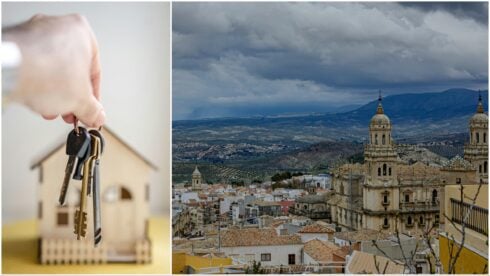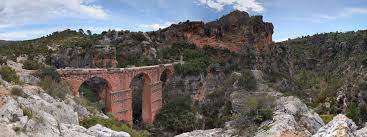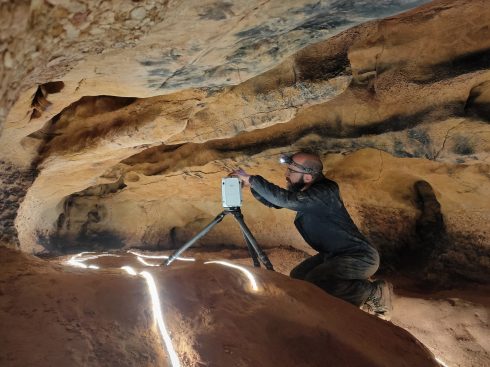THERE is a chalet for sale on the Haya real estate site for €347.679. It was built in 1974 at the upmarket end of a small mountain town on the outskirts of Madrid. It has four bedrooms, two bathrooms and a Spanish flag flying out front.
The flag was put up by a young family squatters who moved into the property and were apparently to be ‘sold’ along with it, together with the electro-domestics.
The house belongs to Bankia, which repossessed the property when its previous occupants failed to keep up with their mortgage payments.
The new occupants pay nothing at all – not even for their water and electricity, creating a certain amount of resentment in the neighbourhood. As Vox captured much of the town’s vote in the 2019 general election, perhaps the flag was an attempt to win over the locals.
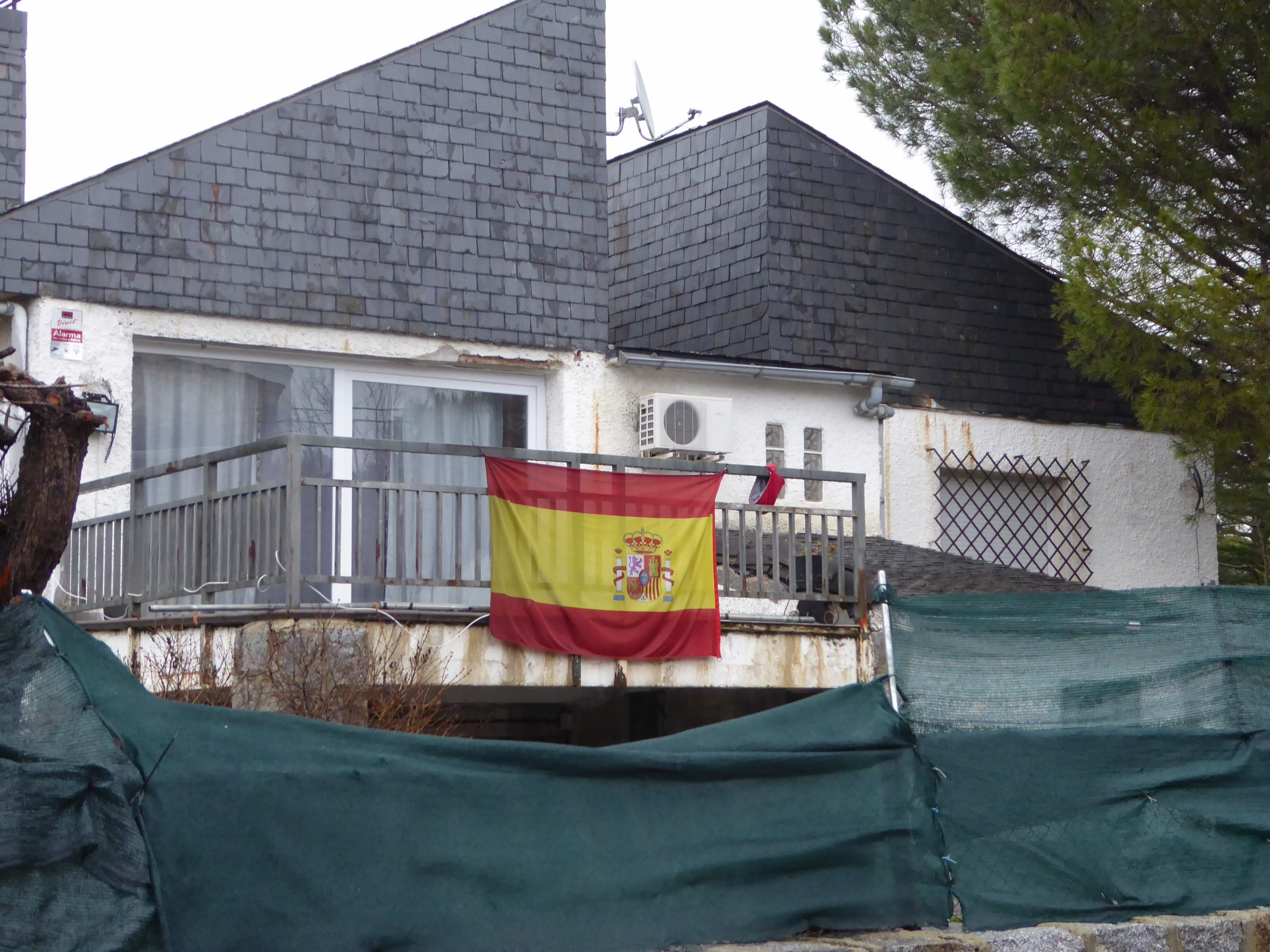
The story went round that the family had come to an arrangement with the bank: they could stay until the property was sold and would be given a lump sum to move on when it was.
In this case, the rumours may be groundless but the concept is not the ‘urban myth’ dismissed by Idealista real estate spokesman Beñatdel Coso. According to Enrique Villalobos, president of the Regional Federation of Neighbours Associations of Madrid (FRAVM) “It goes in waves. There are times when it is of interest to vulture funds and financial entities to coordinate with the mafias.”
READ MORE:
- Professional squatters have found new means of bypassing new laws, and everyone is passing the buck, writes Jacque Talbot
- Olive Press journalist attacked by squatter at urbanisation home to British residents in Alicante
The most glaring instance occurred between 2014 and 2017 in Ensanche de Vallecas, Madrid when the vulture fund Encasa Cibeles (part of Goldman Sachs) bought social housing there. “We don’t have any hard evidence but legal tenants had conversations with the squatters who said they expected to be paid between €2,000 and €5,000 to leave when the time came, and there were no efforts to report them to the police while they were there,” says Villalobos.
The building became so run down and lawless that the legal tenants on social housing rents vacated their homes. Job done.
“Curiously all the squatters arrived together and left together,” says Villalobos. “The buildings’ apartments have since been refurbished and sold.”
In December, the Supreme Court annulled the sale of 2,939 social housing properties to Encasa Cibeles by Madrid’s PP government in 2013. Then priced at €201 million, they now have a market value of €400 million. Aalmost half have been sold but the PAH ( Platform for those Affected by Mortgages) is demanding these sales be overturned or compensation paid.
Other areas of Madrid look susceptible to the same dubious strategies, according to Villalobos.
“Anyone looking at an aerial shot of the Puente de Vallecas area south of Madrid can see that this district will attract a lot of property speculation over the next 15 years,” he says. “Investment funds are already buying here. They leave the properties empty and don’t pay communal costs, which is an open invitation to squatters, so the area gets so run down no one wants to live there. Then they get permission to build on land nearby, make a fortune with new upmarket apartments and a whole new modern neighbourhood in Madrid is created for people with money. That’s how it’s done.”
PAH spokeswoman Marga Rivas corroborates Villalobos’ view that money can exchange hands in a counter-intuitive direction.
“Some funds and financial institutions will offer squatters money to leave. But most of the families don’t want that. What good is €3,000 or €4,000 to them if they are back on the street? They want to be left in peace and to pay a rent that corresponds to their income.”
According to Rivas, financial institutions still have around 3.5 million repossessed properties on their hands which they sell at market value to individuals but for next to nothing to investment funds.
Around 60,000 belong to Sareb, the government-owned so-called ‘bad bank’ set up to sell off toxic real estate assets belonging to Bankia, Catalunya Banc, NGC Banco-BancoGallego and Banco de Valencia.
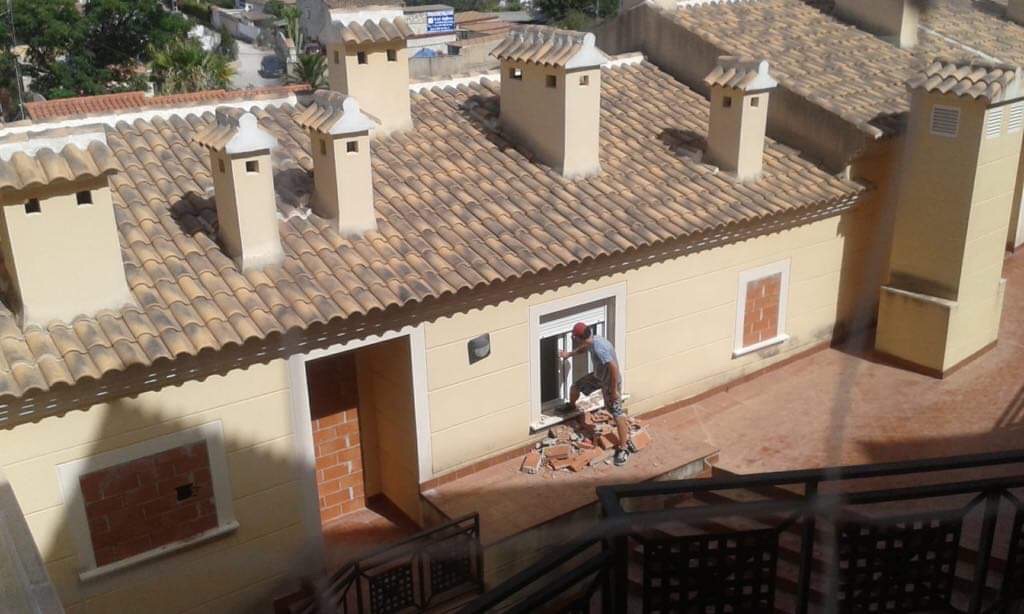
Sareb spokesperson Susana Diaz tells me that while squatters are immediately reported, the company works with social services to find them alternative housing.
Would Sareb offer money to squatters to leave the premises? “Absolutely not,” she says. “Sareb is extremely scrupulous.”
Scrupulous maybe – sympathetic, not so much. According to Rivas, “Sareb is evicting the highest number of families. All we can do is keep negotiating with them and demand that the State makes Sareb’s properties available to its citizens.”
According to current estimates there are circa 87,000 illegally occupied properties in Spain, the majority owned by the banks. And while the FRAVM believes mafia-controlled squats are a minority, their impact can be devastating for a neighbourhood.
However the majority of squatters, according to Villalobos, are those reeling from a banking system that has repossessed their homes and is still demanding they meet the rest of their debt with interest.
Clare. M. who lives in Puente de Vallecas, the second most popular area for squatting in the capital, agrees that there are different types of squatters.
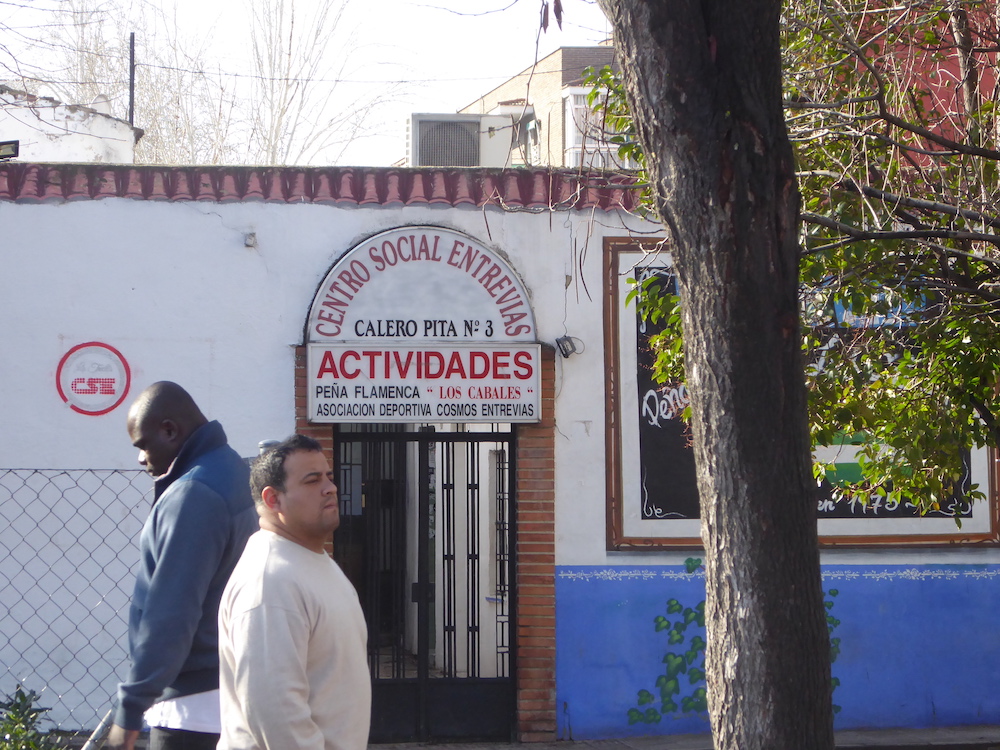
“The young girls squatting in front of me have been up on the roof all day mending it. They have vastly improved the house. It was a drug den before them came, knee high in syringes.”
Meanwhile, in the Tetuan district close to the centre, a group of squatters who participate in activities organised by the Anarchist Occupied Space Emboscada, worked hard to win their wary neighbours over.
“Dinners are organised for the entire neighbourhood on Wednesday evenings,” says Ana who is involved in the movement. “So the neighbours change the image they have of squatters in general. They have accepted the situation.”
But for the squatters in the €347,679 chalet outside Madrid, the reception is proving frostier, despite the patriotic flag. “No wonder people voted Vox,” retorted one disgruntled neighbour. “They want politicians who are going to sort this kind of thing out.”
Click here to read more Property News from The Olive Press.


